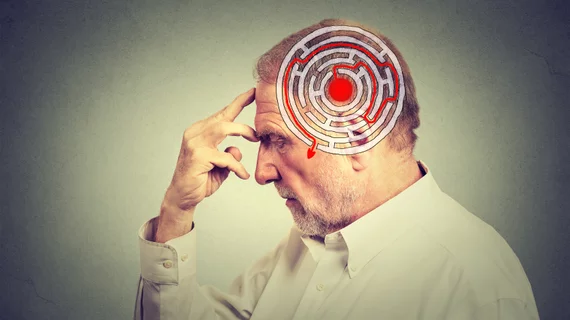MRI scans show COVID's 'significant' impact on the brain
Research into the brain MRIs of individuals who recovered from COVID-19 cases revealed that the virus carries more than just respiratory implications—it can significantly alter the brain too, experts reported recently in Nature.
Based on the brain scans of more than 700 U.K. Biobank participants, researchers identified changes in the gray matter of individuals who had been infected with COVID, despite their illnesses being considered mild in nature.
“There is strong evidence for brain-related abnormalities in COVID-19," corresponding author Gwenaëlle Douaud, of the Nuffield Department of Clinical Neurosciences at the University of Oxford, and co-authors wrote.
The U.K. Biobank contains images from participants both before and after COVID infection, which researchers used to monitor neurological changes. For comparative purposes, the brain scans from individuals who had never acquired the virus—but shared similarities, such as age, sex and COVID risk factors—were also incorporated in the study. Participants waited an average of 141 days between COVID diagnosis and their second brain MRI.
When comparing imaging from the COVID group to the control group, researchers observed significant changes to the gray matter in brains of those who had been infected with the virus. They noted a reduction of gray matter thickness in the areas of the orbitofrontal cortex and parahippocampal gyrus, both of which impact memory processing. The experts also identified tissue damage in the primary olfactory cortex. Given that the olfactory system is responsible for our sense of smell, the damage observed in this area of the brain could explain the sudden loss of smell many people reported experiencing during their infection.
The COVID group also showed a loss of overall brain size and displayed signs of increased cognitive decline. Importantly, when the individuals who were hospitalized were excluded from the data, the findings remained consistent, signaling that even milder cases of COVID come with neurologic consequences.
“These mainly limbic brain imaging results may be the in vivo hallmarks of a degenerative spread of the disease via olfactory pathways, of neuroinflammatory events, or of the loss of sensory input due to anosmia,” the experts wrote. “Whether this deleterious impact can be partially reversed, or whether these effects will persist in the long term, remains to be investigated with additional follow up.”
More on medical imaging of COVID-19:
These ultrasound features distinguish between COVID vaccine-related and malignant adenopathy
'Pandemic brain': PET/MRI images reveal how COVID's impact is felt by non-infected individuals
Cardiac MRI scans offer new insight into COVID vaccine-related myocarditis
Mammograms should not be delayed after COVID vaccine, research shows
Myocarditis, arrhythmias and more: An ACC update on what cardiologists know about long COVID-19
Athletes with COVID-19 may require heart MRI screening for myocarditis, new data suggest
The pandemic’s toll: 55 long-term side effects of COVID-19
MRI scans show COVID's 'significant' impact on the brain
Not so fast: Specialists warn against cardiac imaging for asymptomatic COVID-19 patients

